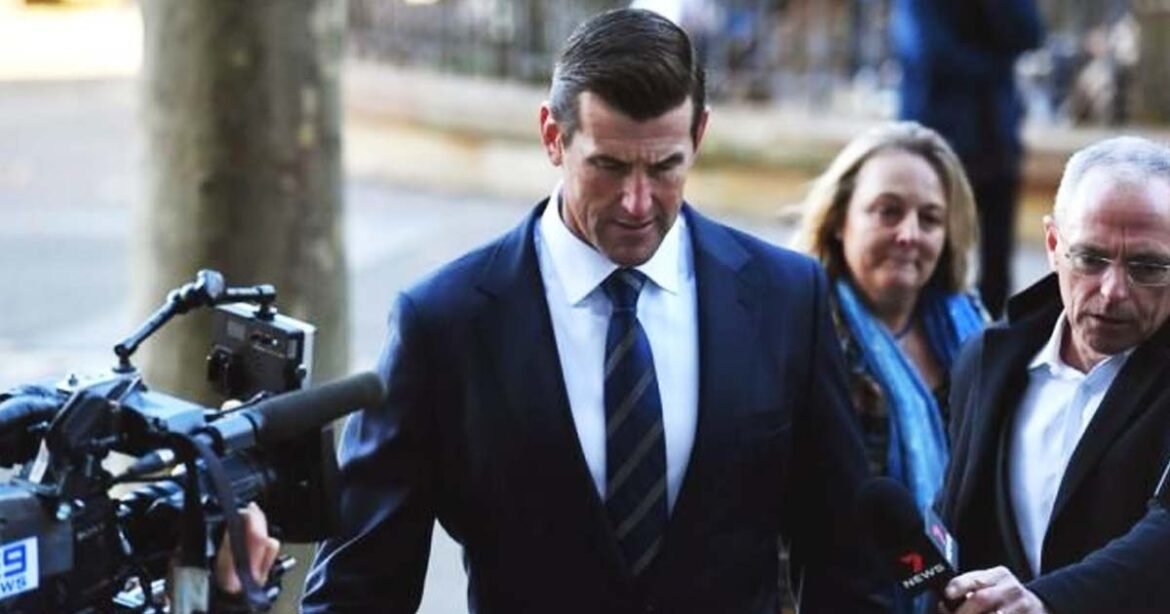Australia’s most-decorated living soldier is filing an appeal against a significant defamation verdict that found him responsible of committing war crimes.
In a historic legal battle that has captured national attention, Australian war hero Ben Roberts-Smith, the country’s most decorated living soldier, is now appealing a groundbreaking defamation verdict that found him guilty of war crimes. The trial, which evaluated allegations of misconduct by Australian forces for the first time in history, has attracted international attention and raised concerns about the nation’s military reputation. The Victoria Cross recipient Roberts-Smith has submitted an appeal against the defamation verdict and maintains his innocence.
Background
The defamation case brought by Roberts-Smith centers around a series of articles published in 2018 by three Australian newspapers (The Sydney Morning Herald, The Age and The Canberra Times), alleging serious misconduct during his deployment in Afghanistan between 2009 and 2012. The articles claimed that Roberts-Smith was involved in the murder of unarmed Afghan prisoners and civilians, accusations he vehemently denies. The trial, known as “the trial of the century,” lasted 110 days and was rumored to have cost up to A$25 million.
The newspapers claimed Roberts-Smith was involved in six murders of unarmed prisoners or civilians while deployed in Afghanistan between 2009 and 2012. According to the newspapers, these included very brutal tortures before shooting them and the murders were ordered by him to initiate or “blood” rookies.
Roberts-Smith, who left the defense force in 2013, has not been charged over any of the claims in a criminal court, where there is a higher burden of proof.
Defamation verdict and resolving for appeal
A Federal Court judge dismissed Roberts-Smith’s defamation lawsuit against The Age, The Sydney Morning Herald, and The Canberra Times on June 1. The judge determined that the articles were “substantially true” and that Roberts-Smith was responsible for the alleged war crimes.
In addition, the judgment disclosed that Roberts-Smith lied to conceal his misconduct and threatened witnesses. Nonetheless, additional allegations against him were not substantiated to the level required in civil cases.
In 2018, when the articles were published, Roberts-Smith was considered a national hero, having been given Australia’s highest military honor for single-handedly defeating Taliban fighters who attacked his Special Air Service (SAS) platoon.
Roberts-Smith has resolved to appeal the verdict of defamation, though the specific grounds for his appeal are currently unknown. His legal team will present arguments against the court’s decision and seek to overturn the verdict that tarnishes his status as a national hero. The appeals process will lengthen the legal conflict and scrutiny surrounding the allegations of war crimes.
Some unexpected truths and it’s wider implications
The high-profile case has brought attention to the issue of Australian forces committing war crimes in Afghanistan. Ben Roberts-Smith’s trial has shed further light on the alleged “code of silence” and “warrior culture” within the SAS. In 2020, the Brereton Report uncovered evidence that Australian soldiers, including members of the elite Special Air Service (SAS), unlawfully killed 39 individuals in Afghanistan.
As Roberts-Smith’s defamation case became a battleground to establish the truth behind the allegations, the trial captivated the nation. The involved media entities argued that they reported the truth, while Roberts-Smith claimed that the articles destroyed his life and reputation. The outcome of the trial will not only affect Roberts-Smith, but also the credibility of the media and the public’s faith in the military and the judicial system.
During the trial, substantial evidence on various aspects of Roberts-Smith’s life was presented, causing media chaos and drawing a worldwide audience. Afghan villagers, former or active elite soldiers, and government officials testified regarding alleged war crimes and malfeasance. The trial revealed startling information, including Roberts-Smith’s alleged participation in the murder of unarmed prisoners and civilians.
Roberts-Smith’s defense team ardently denied the allegations, arguing that they were unfounded and fueled by coworkers seeking to tarnish his reputation out of jealousy. They argued that the testimony of the witnesses was inconsistent, “fanciful,” and unreliable. Additionally, the defense cast doubt on the veracity of official field reports, suggesting that they may have been falsified to conceal crimes.
The trial investigated further allegations of Roberts-Smith’s abuse, including incidents of physical violence against fellow soldiers. While he acknowledged punching a soldier in the face during combat, he denied other allegations, such as threatening a peer with a headshot. Sometimes, witness testimony and documentary evidence supported Roberts-Smith’s account of the events, calling into question the veracity of the accusations made against him.
As the case cast light on the clandestine world of the SAS and its alleged “code of silence, the trial highlighted the need for a comprehensive examination of the culture of the military, accountability mechanisms, and the treatment of allegations of war crimes.
Moreover, the verdict could pave the way for further war crimes investigations and accountability for Australian soldiers.
On a global scale, the attitude of the military and civil hierarchy of Western countries regarding war crimes and human rights violations in the Afghan war has come to the forefront. Despite having substantial evidence, a soldier was granted the highest military award in the country.
To conclude, the appeal filed by Ben Roberts-Smith against the landmark defamation verdict adds another chapter to the ongoing legal battle over war crimes allegations against Australian soldiers. The trial has raised important questions about the conduct and accountability of the military in Afghanistan, particularly within the elite SAS unit. As the nation awaits the appeal verdict, it remains to be seen how this high-profile case will shape future investigations and discussions surrounding war crimes committed by Australian forces.


